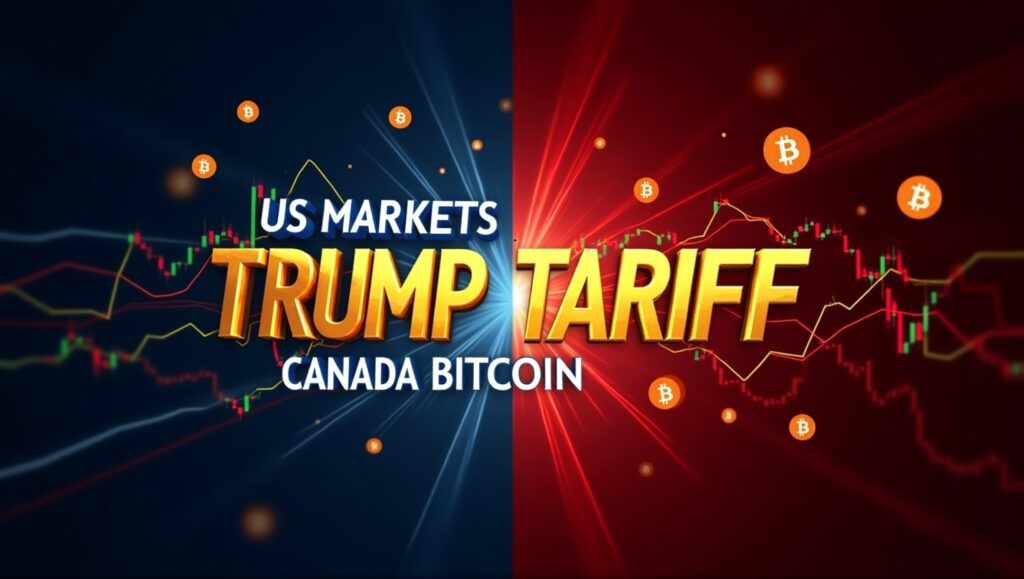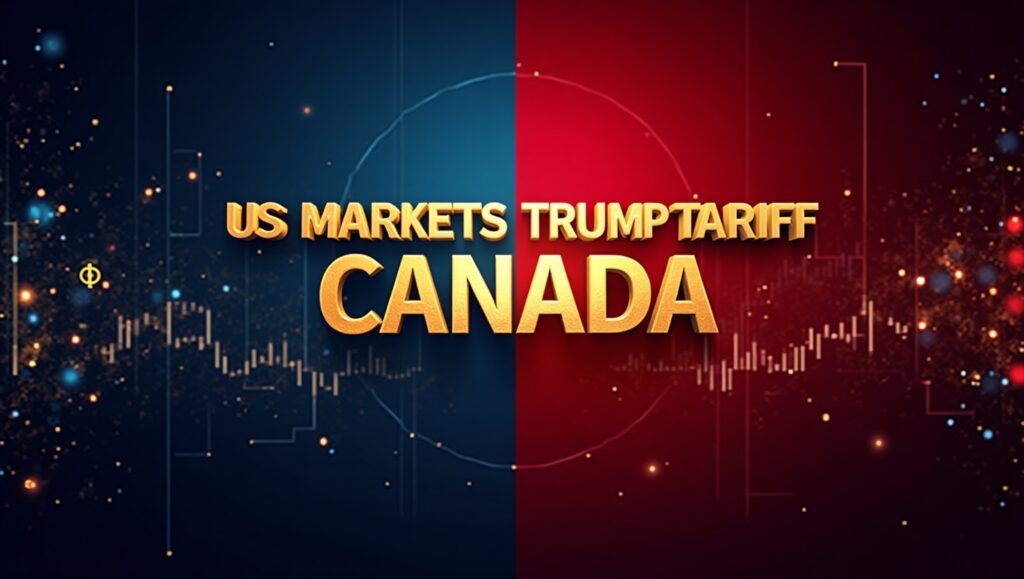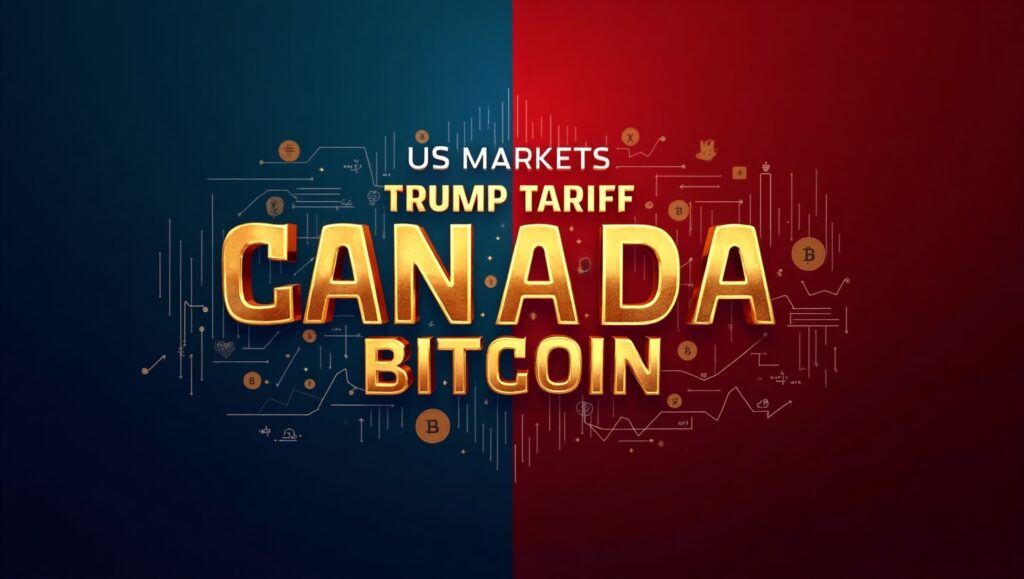In a surprising turn of events, former President Donald Trump’s recent talk about higher tariffs on Canadian imports and more control over Bitcoin has caused serious discussions on Wall Street. As Trump continues to run for president in 2025, his economic plans are once again in the news. US markets, international trade partners, and cryptocurrency investors are all reacting quickly. This article looks at how Trump’s proposed tariffs on Canada, his changing stance on Bitcoin, and how these measures are affecting the US market.

Trump’s plan to put tariffs on Canada is a well-known one
Donald Trump is going back to one of his most controversial economic policies: tariffs. He hinted at the potential of putting tariffs again on Canadian aluminium, lumber, and car parts at a recent rally. This is identical to what he did as president from 2018 to 2020.
Trump said that “protecting American industries” is vital because of unfair trade tactics and outsourcing jobs. Experts, on the other hand, say that this kind of protectionism might make trade tensions with Canada, one of the US’s most important trading partners, flare up again. In reaction, the Canadian government has said it would think about putting up duties on goods from the US if it felt it was necessary.
Investors are worried because of these tensions. After Trump’s comments, the stock market has seen some very volatile trading sessions in sectors that depend on trade between countries, such as manufacturing, construction, and cars.
US Markets React: Mixed Signals All Around
The tariff pronouncements have had different effects on the US markets. The Dow Jones Industrial Average went down a little, and the S&P 500 stayed the same because investors were being careful. Shares of domestic steel and aluminium companies, on the other hand, went up a little bit because they would profit from having less competition from outside.
At the same time, companies that rely on components from Canada witnessed small drops. Ford and General Motors, two automakers that rely significantly on Canadian parts, saw slight drops as investors took into account the possibility of supply chain problems.
Trade experts say that in the bigger picture of the economy, these kinds of tariff conflicts usually cause prices to go up for consumers, supply problems, and slower economic growth.
Bitcoin in Trump’s Crosshairs: Rules Are Coming
Trump’s fresh criticism of Bitcoin and other cryptocurrencies was probably more startling than his statements about tariffs. Trump, who has been against digital currencies in the past, said that if he were elected, he would think about putting “strict regulatory controls” on Bitcoin to “protect the US dollar.”
Bitcoin is gaining ground again, having recently crossed the $60,000 milestone because to more institutional adoption and ETF approvals. Trump’s position adds uncertainty to a market that has been trying to get clear rules from the government.
The crypto market moved swiftly. Within hours after Trump’s comments, the price of Bitcoin dropped by 4%, and altcoins dropped much more. Investors are now paying close attention to whether his campaign promises could become real policy if he is re-elected.

Canada’s Position: A Key Ally Is Feeling the Pressure
The economies of Canada and the United States are very closely linked. In 2024, trade between the US and Canada was worth more than $800 billion, making the US Canada’s biggest export market. Tariffs on important industries like lumber or aluminium might have a big effect on Canadian businesses, especially in British Columbia and Ontario.
Officials in Canada have asked for prudence and stressed how important it is to have stable, rules-based commerce under the USMCA (the United States-Mexico-Canada Agreement). There is also more and more worry that higher trade barriers may make North America less competitive with Asian economies that are growing quickly.
What this means for 2025 and beyond
Trump’s suggested economic policies are having ramifications around the world as the election for the US presidency heats up in 2025. These proposals might appeal to American voters who are worried about losing jobs and trade imbalances. However, experts warn that these kinds of populist policies could backfire and hurt both consumers at home and ties with other countries.
From a business point of view, these suggestions are likely to make things more unstable, especially in fields related to digital banking and cross-border trade.
In conclusion, finding a balance between populism and policy
Trump’s tough attitude on trade and cryptocurrency has caused both worry and opportunity in US markets. Protectionist tariffs may help some American companies in the short term, but in the long term, they could hurt international relations, raise prices, and make investors less optimistic.
Bitcoin’s future in the US is also under question right now. More rules might slow down new ideas and make people less likely to invest, or they could make the market clearer and safer, which it really needs.
As politics change, investors, policymakers, and regular people will all be looking intently to see how these possible changes play out and how they affect the US economy in the future




